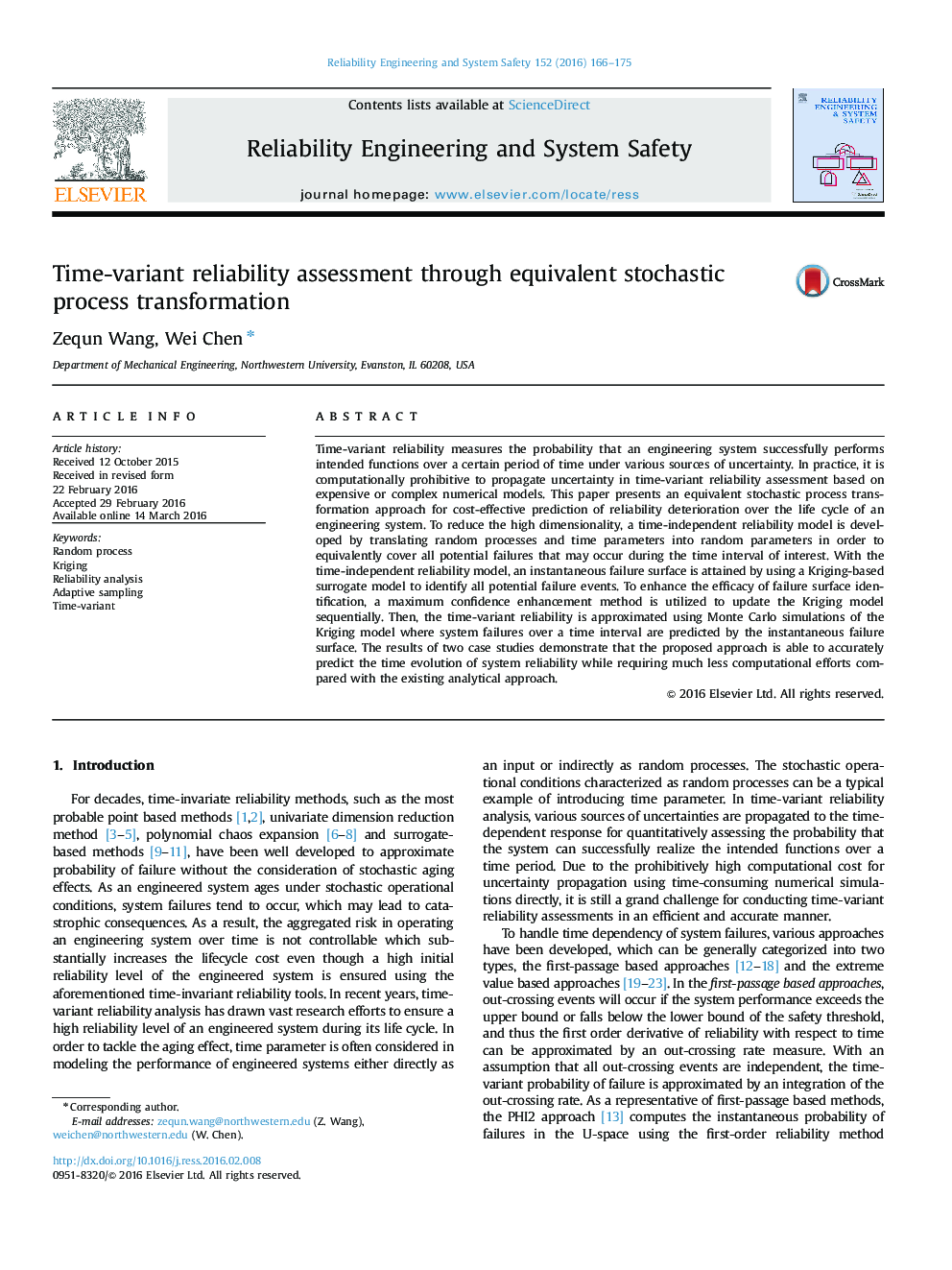| Article ID | Journal | Published Year | Pages | File Type |
|---|---|---|---|---|
| 7195386 | Reliability Engineering & System Safety | 2016 | 10 Pages |
Abstract
Time-variant reliability measures the probability that an engineering system successfully performs intended functions over a certain period of time under various sources of uncertainty. In practice, it is computationally prohibitive to propagate uncertainty in time-variant reliability assessment based on expensive or complex numerical models. This paper presents an equivalent stochastic process transformation approach for cost-effective prediction of reliability deterioration over the life cycle of an engineering system. To reduce the high dimensionality, a time-independent reliability model is developed by translating random processes and time parameters into random parameters in order to equivalently cover all potential failures that may occur during the time interval of interest. With the time-independent reliability model, an instantaneous failure surface is attained by using a Kriging-based surrogate model to identify all potential failure events. To enhance the efficacy of failure surface identification, a maximum confidence enhancement method is utilized to update the Kriging model sequentially. Then, the time-variant reliability is approximated using Monte Carlo simulations of the Kriging model where system failures over a time interval are predicted by the instantaneous failure surface. The results of two case studies demonstrate that the proposed approach is able to accurately predict the time evolution of system reliability while requiring much less computational efforts compared with the existing analytical approach.
Related Topics
Physical Sciences and Engineering
Engineering
Mechanical Engineering
Authors
Zequn Wang, Wei Chen,
